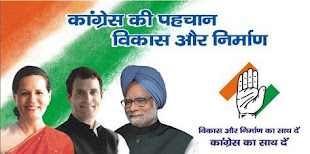M .K. Dharma Raja
An all-time great of the fast-moving game of hockey, Major Dhyan Chand was born on August 29, 1905 and passed away on December 3, 1979. A commemorative postal stamp was issued on his first death anniversary in salutation to the world’s top hockey maestro.
When India now takes steps to regain supremacy in the fiercely competitive game it is important to note that other countries have adopted innovative methods to beat off challenges. A flash-back takes us to the days when Dhyan Chand strode the field during the golden era of Indian hockey.
He began playing the game with Jhansi Heroes. Enrolment in the Army in 1922 gave him an opportunity to gain proficiency in the best standards. Dhyan Chand then caught the eye of the selectors and was chosen to play in the inter-provincial Championships. With his powerful wrists and bursts of speed he made a mark and impressed the country’s hockey administrators. He was chosen for the team that played in matches in New Zealand. Coming into prominence Dhyan Chand got opportunity to play in Australia also on the way back home.
The twin-tour paved the way for reinclusion of hockey among the Olympic disciplines. The Indian team with Dhyan Chand playing as center-forward played in Britain as a warm-up for the Amsterdam Olympiad. At the Folkstone Festival, Dhyan Chand scored 36 of the 72 goals scored by the team, he dazzled on the field with an unbeaten record of scoring 23 goals against five opponents without yielding any against. He was the super-star in the matches against Austria, Belgium and Denmark as well as Poland in the final. By virtue of his amazing skill he was soon hailed as a juggler with the stick.
There were only three teams in hockey competition, India, Japan and the U.S.A. In the match against Japan, Dhyan Chand scored four goals and his younger brother Roop Singh, three. In the second encounter versus USA, India hit up a cricket-like score of 24 against a solitary one by the opponents.
On the way homewards, India was engaged in friendly matches against Ceylon (now Sri Lanka), Singapore, Japan, Germany and a few others in the Continent. India won 33 and drew the other two. Dhyan Chand captained India on visits to Australia and New Zealand in 1933. India won in all and 584 goals were scored. The Captains tally was 200. The Cricket Supreme who was surprised asked, “Were the goals hit up by a hockey player or a cricket batsman?”
The hockey wizard as he was by then acclaimed. Dhyan Chand led India at the 1936 Berlin Olympics. India won all the five contests. Dhyan Chand’s spellbinding dribbling as if the ball was glued to the stick bewildered the Germans. Some wondered whether a magnet was concealed within the stick. Dhyan Chand allayed their suspicion by changing the stick midway in the course of the game. He continued slamming the goal-post again and again. The captain was at his superlative best at his final appearance, shooting six of the eight goals against Germany in the last match.
Years after he retired “Dada” as he was fondly called was invited to play in Afghanistan during the country’s Independence celebrations. King Zahir Shah did him the honour of a get-together at tea. On the journey back homewards, Dhyan Chand’s admirers Pakistanis including his former team-mates jam-packed the stations wherever the Frontier Mail with the All India Dhyan Chand XI halted. All the platform tickets were sold out at Lahore where admirers gathered to have a glimpse of the great player. His carriage was loaded with food and fruits.
Dada won world wide fame, in Austria, the Viennese were so much moved with the magical prowess of the supreme that a statue was built there depicting him with four hands holding four sticks.
Dhyan Chand was conferred Padma Bhushan in 1956. A hockey stadium in Lucknow was named after him. The great wizard had the satisfaction of seeing his son Ashok Kumar play as an international donning the national colours.



























0 Comments